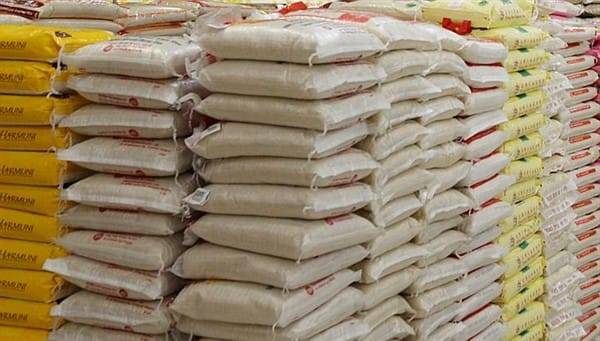Main Points In Hindi (मुख्य बातें – हिंदी में)
-
आयात कर पर स्पष्टता की मांग: बजट एडवोकेसी नेटवर्क (BAN) ने सिएरा लियोन की सरकार से चावल पर 5% आयात कर के माध्यम से एकत्र किए गए राजस्व के उपयोग पर स्पष्टता प्रदान करने का अनुरोध किया है।
-
बजट विश्लेषण के परिणाम: BAN की इस मांग का कारण वित्त मंत्री द्वारा प्रस्तुत 2025 बजट का गहन विश्लेषण है, जिसमें चावल, लौह अयस्क, और सीमेंट पर करों को बहाल करने की बात की गई थी, ताकि कृषि और बुनियादी ढांचे के विकास के लिए धन जुटाया जा सके।
-
सामाजिक-आर्थिक प्रभाव: BAN ने चावल पर लगाए गए करों के कारण बढ़ती आर्थिक मुश्किलों, गरीबी और सामाजिक असमानताओं की चिंता जताई है। रिपोर्ट के अनुसार, सिएरा लियोन के 82% लोग खाद्य असुरक्षित हैं।
-
शिक्षा लेवी की स्थिती: BAN ने 2024 में लागू की गई 1% शिक्षा लेवी की समानांतर स्थितियों पर भी प्रकाश डाला, जिसमें सरकार ने अब तक यह नहीं बताया है कि इन धनराशियों का विनियोग कैसे किया गया और किन विशिष्ट कार्यक्रमों को लाभ हुआ।
- पारदर्शिता और जवाबदेही की अपील: संगठन ने सरकार से कर राजस्व और उनके उपयोग पर त्रैमासिक रिपोर्ट प्रदान करने की अपील की है, ताकि करदाताओं और सरकार के बीच विश्वास पैदा किया जा सके, खासकर बढ़ती आर्थिक चुनौतियों के बीच।
Main Points In English(मुख्य बातें – अंग्रेज़ी में)
Here are the main points from the text regarding the Budget Advocacy Network (BAN) and its concerns about the government’s revenue collection from rice import duties in Sierra Leone:
-
Call for Transparency: The Budget Advocacy Network (BAN) has urged the government to clarify how billions of leones collected from the 5% rice import tax have been utilized. This demand follows a thorough analysis of the proposed 2025 budget presented by the Finance Minister.
-
Concerns Over Revenue Use: Despite the reintroduction of the 5% import tax on rice and 10% tax on iron ore and cement in the 2024 budget to support national initiatives, BAN has pointed out the government’s failure to report the revenue generated and its specific uses.
-
Impact on Socio-Economic Conditions: BAN expressed concerns that the rice tax has increased the economic burden on citizens, contributing to rising poverty and social inequalities. Reports indicate that 82% of Sierra Leone’s population faces food insecurity, with 68% of families spending a significant portion of their income on food.
-
Calls for Accountability in Education Funding: BAN highlighted a 1% education levy introduced in 2024, intended for investment in education. However, the government has not disclosed how the funds have been spent or what specific educational programs have been funded.
- Public Demand for Fiscal Responsibility: Amid rising economic challenges in Sierra Leone, BAN has called for greater transparency and accountability from the government regarding tax revenue and its intended uses. They emphasized that transparency would build trust between taxpayers and the government, facilitating adherence to tax provisions.


Complete News In Hindi(पूरी खबर – हिंदी में)
एक प्रमुख नागरिक समाज संगठन, बजट एडवोकेसी नेटवर्क (BAN) ने सरकार से चावल पर 5% आयात कर के रूप में एकत्र किए गए अरबों लियोन पर स्पष्टता प्रदान करने का आह्वान किया है।
यह मांग वित्त मंत्री शेकू अहमद फंतमादी बंगुरा द्वारा संसद में पेश किए गए प्रस्तावित 2025 बजट के BAN द्वारा गहन विश्लेषण के मद्देनजर आई है।
BAN ने इस बात पर प्रकाश डाला कि 2024 के बजट में, सरकार ने महत्वपूर्ण राष्ट्रीय पहलों का समर्थन करने के उद्देश्य से राजस्व के साथ चावल पर 5% आयात शुल्क और लौह अयस्क और सीमेंट पर 10% शुल्क बहाल किया। विशेष रूप से, ये कर कृषि और बुनियादी ढांचे के विकास को बढ़ावा देने के उद्देश्य से फीड सैलोन इनिशिएटिव और इंफ्रास्ट्रक्चरल डेवलपमेंट फंड को वित्तपोषित करने के लिए थे। हालाँकि, इन करों के कार्यान्वयन के दस महीने बाद, BAN ने नोट किया कि सरकार यह रिपोर्ट करने में विफल रही है कि कितना राजस्व एकत्र किया गया है और इन निधियों का उपयोग कैसे किया गया है।
संगठन ने चावल कर के सामाजिक-आर्थिक प्रभाव पर चिंता व्यक्त की। “इन करों ने, विशेषकर चावल पर, आर्थिक बोझ बढ़ा दिया है, गरीबी बढ़ गई है और सामाजिक असमानताएँ बढ़ गई हैं।“BAN ने कहा। उन्होंने हाल ही में विश्व खाद्य कार्यक्रम खाद्य सुरक्षा निगरानी प्रणाली रिपोर्ट का हवाला देते हुए संकेत दिया कि सिएरा लियोन के 82% लोग खाद्य असुरक्षित हैं, 68% परिवार अपनी कुल आय का 75% भोजन पर खर्च करते हैं।
BAN ने 2024 में शुरू की गई 1% शिक्षा लेवी की समानताएं भी बताईं, जो वस्तुओं और सेवाओं के अनुबंधों पर रोक लगाने वाला कर था। हालाँकि यह लेवी शिक्षा में निवेश के लिए निर्धारित की गई थी, लेकिन सरकार ने अभी तक यह खुलासा नहीं किया है कि धनराशि कैसे खर्च की गई है या किन विशिष्ट शिक्षा कार्यक्रमों को वित्तपोषित किया गया है।
BAN ने सरकार से कर राजस्व और उनके इच्छित उपयोग पर त्रैमासिक रिपोर्ट देकर अधिक पारदर्शिता और जवाबदेही सुनिश्चित करने का आग्रह किया। “पारदर्शिता से करदाताओं और सरकार के बीच विश्वास पैदा होगा, जिससे इन प्रावधानों का अनुपालन सुनिश्चित होगा।संगठन ने जोर देकर कहा।
यह अपील सिएरा लियोन में बढ़ती आर्थिक चुनौतियों के बीच राजकोषीय जिम्मेदारी के लिए बढ़ती सार्वजनिक मांग को रेखांकित करती है।
Complete News In English(पूरी खबर – अंग्रेज़ी में)
A prominent civil society organization, the Budget Advocacy Network (BAN), has called on the government to provide clarity on the billions of leones collected from a 5% import tax on rice.
This demand follows an in-depth analysis by BAN of the proposed 2025 budget presented by Finance Minister Sheku Ahmed Fantamadi Bangura in Parliament.
BAN highlighted that in the 2024 budget, the government reinstated a 5% import tax on rice and a 10% tax on iron ore and cement to support significant national initiatives. Specifically, these taxes were intended to fund the Feed Salone Initiative and an Infrastructure Development Fund aimed at promoting agricultural and infrastructure development. However, ten months after implementing these taxes, BAN noted that the government has failed to report how much revenue has been collected and how these funds have been utilized.
The organization expressed concerns about the socio-economic impact of the rice tax. “These taxes, especially on rice, have increased the economic burden, led to rising poverty, and exacerbated social inequalities.” BAN stated. They referenced a recent report from the World Food Program’s food security monitoring system, indicating that 82% of people in Sierra Leone are food insecure, and 68% of families spend 75% of their total income on food.
BAN also pointed out similar issues with the 1% education levy introduced in 2024, which was a tax aimed at contracts for goods and services. Although this levy was established to invest in education, the government has not yet disclosed how the funds have been spent or which specific education programs have been funded.
BAN urged the government to ensure greater transparency and accountability by providing quarterly reports on tax revenues and their intended uses. “Transparency will build trust between taxpayers and the government, ensuring compliance with these provisions.” the organization emphasized.
This appeal underscores the increasing public demand for fiscal responsibility amid growing economic challenges in Sierra Leone.




